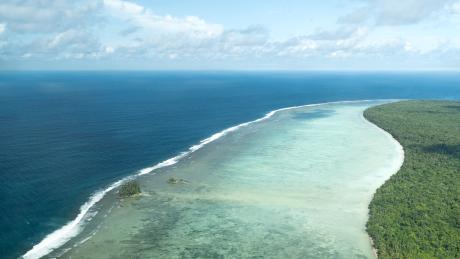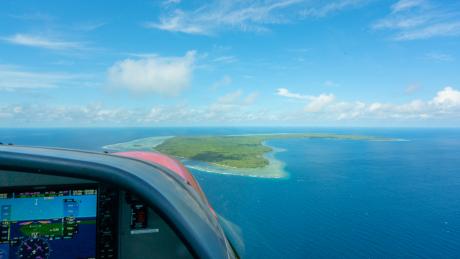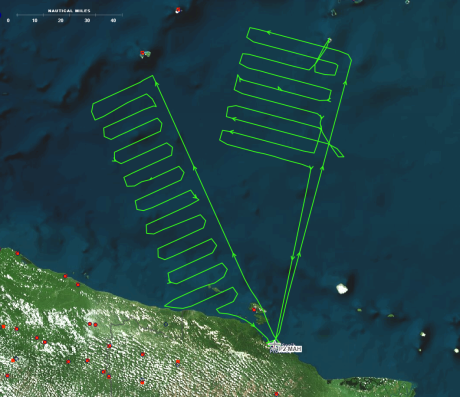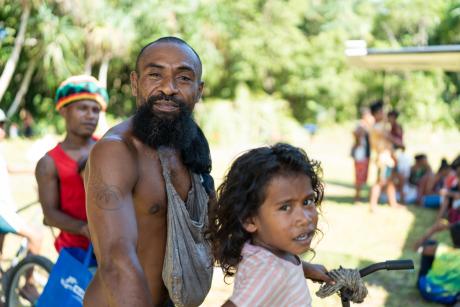
MAF is a beacon of safety among high winds and big waves
Each year around the turn of the new year the winds off the shore of Wewak increase resulting in rougher seas and unsafe travel conditions for Papua New Guineans living offshore on small islands such as Wuvulu. During this time frame, which lasts a few weeks, MAF becomes the only way for the people of Wuvulu to access mainland PNG.
“This time of year, it’s the northwest season, so we've got strong winds and big waves,” said pilot Andy Symmonds who flies out of MAF’s Wewak base. “So, when the waves are too big, they don’t make the crossing by boat. It's just too dangerous.”
In the past, people making the crossing have been washed off course even during the safe season when the winds are mellow, the sea relatively still, and the trip is made frequently. In 2020 a boat’s motor quit while crossing the stretch of ocean during the calm season and ended up drifting far off its intended course.
When the waves are too big, they don't make the crossing by boat. It's just too dangerous.

MAF flew search and rescue (SAR) missions in hopes of locating those lost at sea. However, with the limited data available for this type of mission in PNG the SAR flight failed to locate anyone. The boat and its occupants were fortunate enough to drift ashore alive in Jayapura on the morning of their sixth day at sea.
“I felt personally invested in that SAR flight, as the people on the boat had wanted to come on the plane, but it was fully booked,” said Andy. “I think we all felt a wave of relief when the boat and its passengers were found alive.”

Wuvulu sits roughly 130 miles off the shore of PNG and is only four miles across. When the winds are calm the people of Wuvulu typically make the crossing to mainland PNG via a six to seven-hour boat ride that is made in small vessels powered by an outboard motor, that hopefully sees the little boats pushed through to the mainland.
“It is always a privilege to serve this incredibly remote community of Wuvulu, where so few 'outsiders' ever go. They are always very welcoming and appreciative of the service that MAF is able to offer them,” said Andy.

The MAF pilots stationed in Wewak provide more than just safe passage to the inhabitants of Wuvulu. There are many areas in the jungle above the shores of the coastal area that rely on goods to be airlifted to their villages.
“Airstrips are their lifeline to get trade-store goods and building materials for things like schools,” said Andy. “Quite often we go up into the highlands from Wewak. There is no other way to get up there with trade-store goods or building materials that communities up there need unless we take them by air.”
Wewak is the capital of the East Sepik area of PNG. This region has a network of roads that run along the coast but is cut off from the highlands and the rest of the country unless you travel by air. MAF PNG has four bases across the country and one of them is located in Wewak along with two pilots and one Cessna 208 Caravan.
